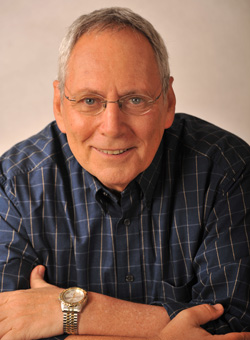Very much appreciated the booklet of articles that were provided - will serve as a useful reference to refer to time and time again.
Biography
Formulation of my Healing Philosophy
 The story of my father's life and premature death provided early inspiration and motivation for my choice of career and has continued to guide the evolution of my approach to the practice of medicine.
The story of my father's life and premature death provided early inspiration and motivation for my choice of career and has continued to guide the evolution of my approach to the practice of medicine.
My dad was a soldier in World War II. He was among the thousands who stormed the beaches of Normandy on D-Day. His was the gruesome task of collecting bodies and body parts on the battle field. One can hardly begin to imagine the horror involved in that grisly duty or the toll it would take on the psyche.
My dad came home a hero with gleaming medals on his chest. It was expected that men in his position should be grateful to be alive and happy to be back home. My father, like so many other returning warriors in that era, came home carrying the emotional and psychological burdens that result from the terrors of war. Today, we understand far more about PTSD and the implications for soldiers returning from battle. Back then those wounds and internal scars were largely ignored. People in dad’s immediate surroundings wanted to celebrate him being home. The larger culture reflected that if the wound wasn’t visible on the flesh, it was considered largely irrelevant, if not imaginary. Even dad himself didn’t want to dwell on or discuss what he’d been through. The general consensus in that day and age was to “put unpleasantness behind you” and move on. In some ways, we haven’t come very far in that regard.
From the time he came home, my dad manifested symptoms of mental and emotional distress, bouts of anxiety and depression, and as a result was hospitalized several times in mental hospitals where he received shock treatments to try to ‘fix’ his malfunctioning brain. He eventually developed heart disease, underwent an unsuccessful bypass surgery and died on the operating table at the age of 57.
I was 26 years old, exploring my career options and my life's purpose when my father died. I had watched him suffer in silence for the years leading up to his death. It was clear to me, even then, that something very important had been denied and ignored in his experience. My father never spoke to anyone about his life and what he experienced in the war. No one ever asked him about it. He was never provided an opportunity to express his pain and grief over what he’d been through. What he experienced was considered a secret that needed to be kept hidden from everyone.
I knew, deep in my soul, that his sad descent into mental and physical illness, and his ultimate death was somehow related to what wasn’t spoken about or addressed. His doctors shocked his brain and tried to bypass the blockages in his heart to “cure” my father, but the professionals who treated him, and those of us who loved him, unknowingly ‘bypassed his life.’
As a result of my father’s sad experience, and how deeply grieved I was to lose him so early, I became driven to understand the relationship between our difficult life experiences and the manifestation of illness. I wanted to learn how to help people find authentic healing that addressed all parts of themselves – mind, body and spirit. I believe this would have made a difference for my father.
Everyone has a story. People need to tell their story and someone needs to listen to that story and help them understand the connection between their past and current life experience and their health challenges. Even with all we’ve learned since the World War II era, there is still not a widely practiced understanding of this in the medical community.
My father’s experience deeply influenced my career choice and the path that it has taken. My passion and purpose as a naturopathic physician, teacher, speaker and coach is to communicate the importance of treating one's biology and one's biography, the cell and the self, and understanding the profound difference between healing and curing and the need to integrate both.
Attendee Mind-Body Medicine Course
Ontario Association of Naturopathic Doctors
Continuing Ed Training
Keep In Touch
Join our community and sign up for our email list. Stay up to date on events, seminars and workshops.




